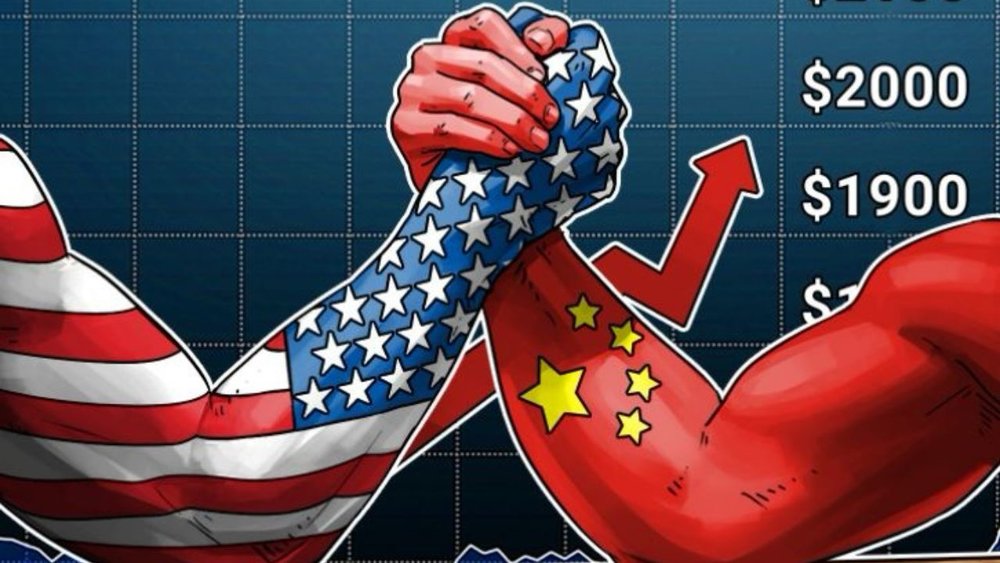U.S.-China relations worsens

TEHRAN – U.S.-China relations worsened during Trump's presidency. Of course, there were disagreements between Beijing and Washington over both security and cyber-crimes during the presidency of Barack Obama, but the emergence of trade and economic disputes in bilateral relations should be analyzed "beyond a simple controversy".
The U.S. has already applied tariffs to $50 billion worth of Chinese goods and China has retaliated with tariffs of its own. Another intensification of trade tensions could derail plans for upcoming talks and potentially damage the world’s two largest economies if the dispute continues. Trump promised during his presidential campaign that he would seek to reduce massive U.S. trade deficits with China. In 2017, the U.S. posted a $376 billion deficit in goods with China. Many of the experts and economic analysts in the United States mention the publication of these figures by the US Department of Commerce as the main reasons for Trump's recent verbal attacks against Beijing.
Anyway, economic disputes between Beijing and the United States have entered a new phase.
Reuters reported that U.S. Secretary of State Mike Pompeo and Chinese Foreign Minister and State Councilor Wang Yi aired their grievances in the open on Monday during a brief visit to Beijing by Washington's top diplomat, amid worsening relations.
The two diplomats' meeting at Beijing's Diaoyutai State Guest House was unusually frosty and full of disagreements which none of the two sides tried to conceal.
"Recently, as the U.S. side has been constantly escalating trade friction toward China, it has also adopted a series of actions on the Taiwan issue that harm China's rights and interests, and has made groundless criticism of China's domestic and foreign policies," Wang said at a joint appearance with Pompeo.
"We believe this has been a direct attack on our mutual trust, and has cast a shadow on China-U.S. relations," he added. "We demand that the U.S. side stop this kind of mistaken action."
These remarks were followed by Pompeo's reaction, who was briefing Wang following his visit with North Korean leader Kim Jong Un, "The issues that you characterised, we have a fundamental disagreement. We have great concerns about the actions that China has taken…"
The joint press conference between Chinese and American officials ended while the two sides couldn't come up with a solution for reducing disagreements. On the other hand, Pompeo's emphasis on "fundamental disagreement" with Beijing on economic and security issues once again suggests that the Trump government has no intention for revising its anti-China policies in the international system.
At the beginning of 2017, when Trump was appointed at the head of the political and administrative equations of the United States, some American strategists, including Henry Kissinger, suggested him that he needs to "restrain China" as a highlighted foreign policy. This was exactly what Trump did since he entered the White House.
However, many American economic analysts believe that Trump's implementation of protectionist policies against Beijing will have no good results for Washington (especially in the long run), and besides, those protectionist policies lead to the establishment of economic ties between China and other international players including Russia and the European Union. Undoubtedly, the direct consequence of establishing these economic ties would be the isolation of Washington in the international system.
On the other hand, the Chinese authorities have announced that they will retaliate the U.S. president's protectionist policies and his irresponsible intervention in international trade. This has led many American companies to criticize Trump's anti-China policies in the field of international economics and to analyze it as a deterrent policy.
More importantly, in addition to the economic tensions (which are rising exponentially), the United States is attempting to limit China in East Asia by imposing specific policies towards Taiwan and North Korea, an issue that Beijing will definitely react to with a determined response.
In such a situation, Trump will try to reduce the U.S. trade deficit, and the consequence of its short-term performance will be a rise in China's trade deficit, as China's exports will be reduced. However, in the long run, Trump's economic protectionism can also blow the domestic economy of the United States.
In this case, we'll see constant and extensive inflammation in the field of domestic and international economics in the United States. Beyond that, there is another consideration regarding the economic relations between the United States and China, which Donald Trump completely neglected:
According to evidences in the field of International Trade and Economics, the Chinese have owned about $ 1 trillion of U.S. foreign debt. China has also been the largest purchaser of U.S. Treasury auctions over the past few years, and it is not unlikely that people like Hillary Clinton- the Democrat candidate in the 2016 presidential election- have warned against trade war with China. Many American economists refer to China as "America's banker." In such a situation, the U.S. full-fledged economic opposition with Beijing can be interpreted as a commercial and economic suicide.
Finally, China and the United States are both likely to use methods in this economic conflict, which contradicts their economic red lines in recent years. In such a situation, we'll witness lots of ups and downs in the economic and commercial structure of the two countries. Eventually, the controversy between the two players won't be limited to Washington and Beijing, and their business partners will, willingly or unwillingly, enter their war.
